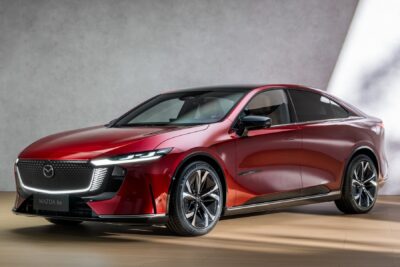Graz University, Mazda, NXP Semiconductors, Skoda Electric.
Light and airy: Researcher at the Graz University (Austria) and University of St. Andrews (UK) have found a way to increase the efficiency as well as capacity of lithium-air batteries. By using titanium carbine as electrodes instead of carbon, and light weight oxygen instead of heavy ionic structures, researcher say, storage capacity could be increased tenfold.
ofweek.com, samachar.com
Rotary range extender: Mazda has revived its Wankel rotary engine, giving it a purpose in a new context. The rotary now serves as range extender in a Mazda2 EV prototype, adding an extra 200 kilometres (125 miles) to the battery pack.
greencarreports.com, autoexpress.co.uk
New connection? NXP Semiconductors and Datang Telecom have established a joint venture for the development and marketing of semiconductor solutions for electric and hybrid vehicles in China. It is the first of its kind company in the country. Chinese authorities have yet to give the business a green light.
digitimes.com; nxp.com
Skoda Electric plans e-busses: The Czech manufacturer takes to the streets with two electric busses. The first model was introduced in September and has a range of 150 kilometres (93 miles). Charging takes place at the depot overnight. The second e-bus, due in 2014, is said to have a range of 30 km (19 m) and can be recharged quickly at bus stops and terminals.
greencarcongress.com




0 Comments